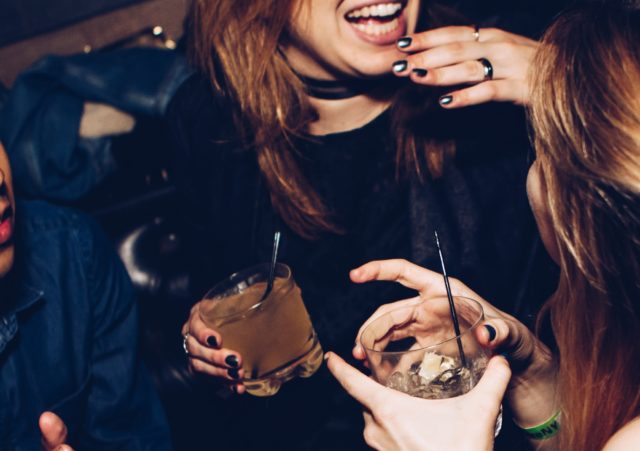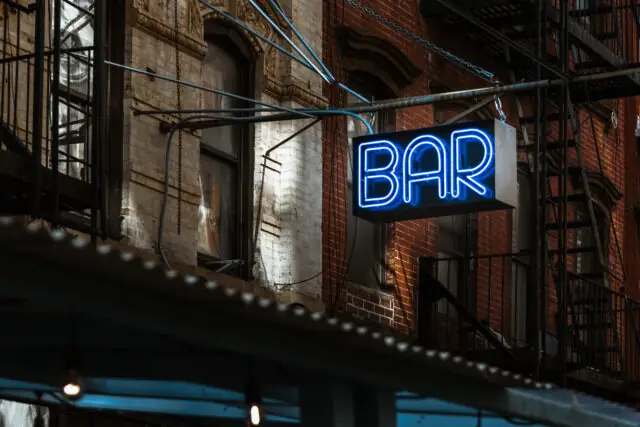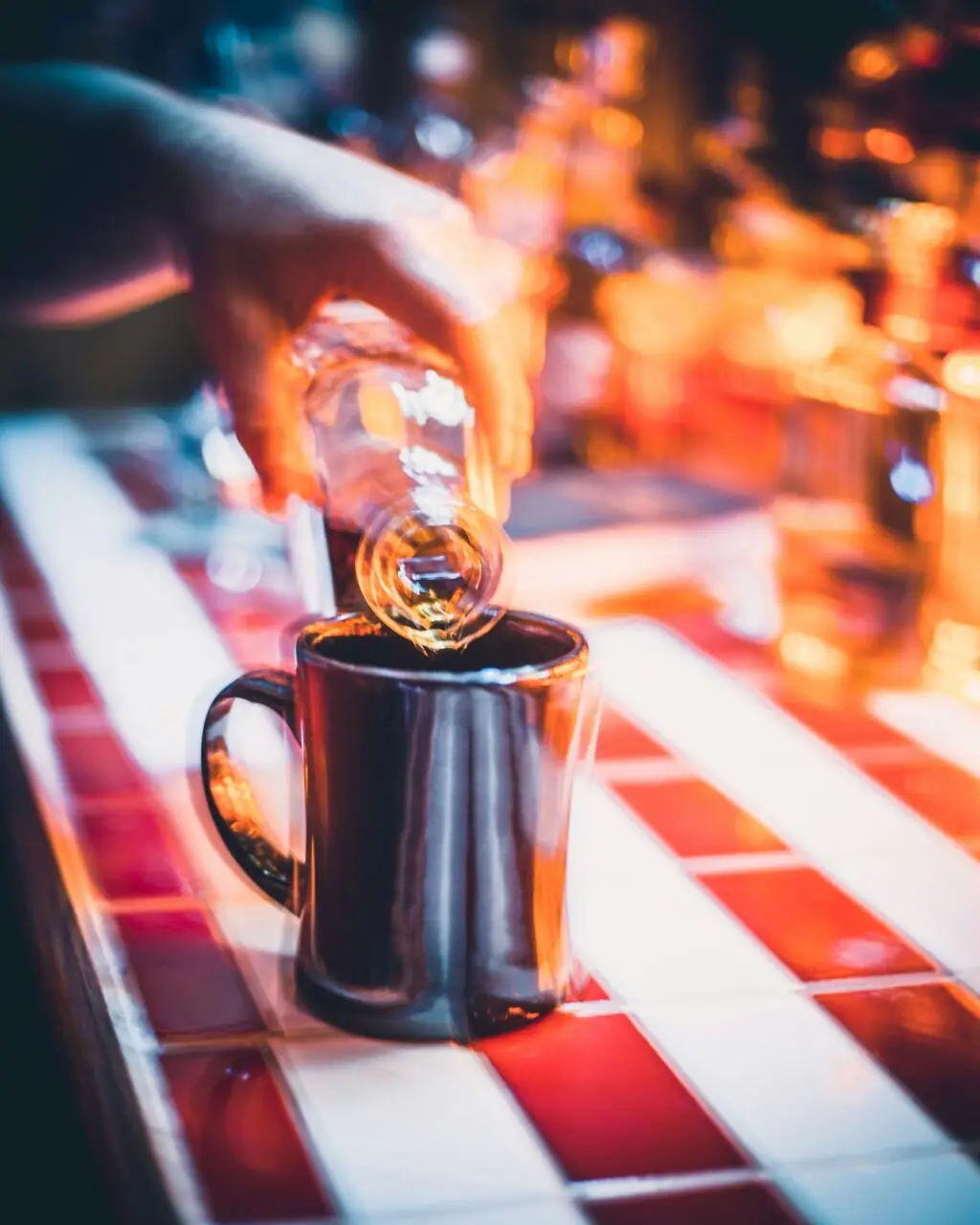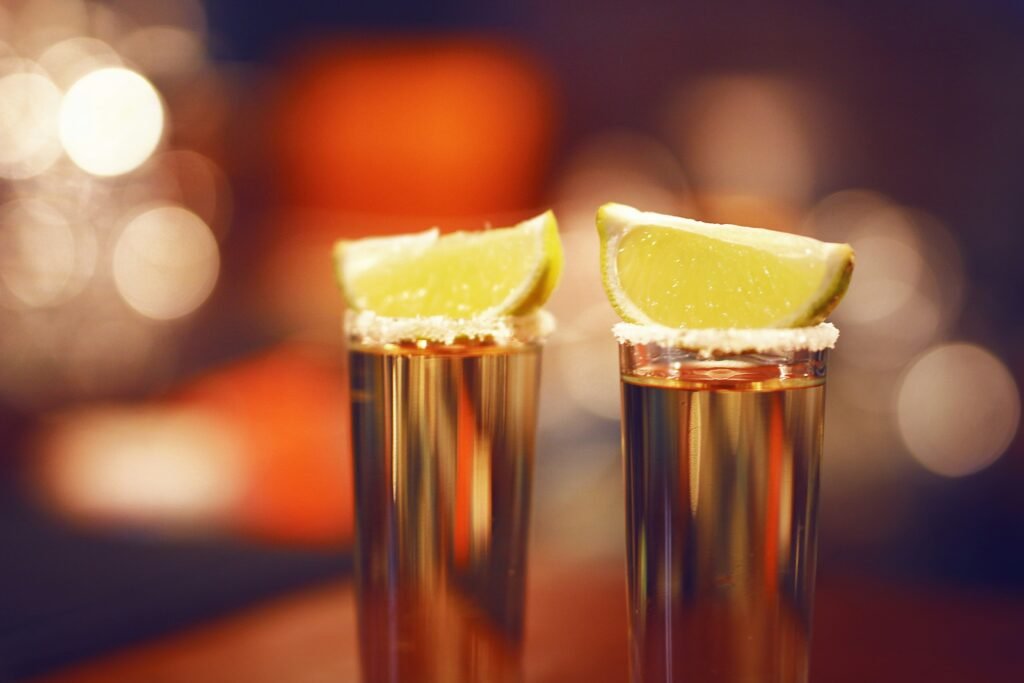Published:
Last modified:
Everything you need to know about dealing with drunk customers / intoxicated people in your operations

What is alcohol?
In the Licensing Act 2003, “alcohol” means spirits, wine, beer, cider or any other fermented, distilled or spirituous liquor ‘in any state, including powdered or vaporised alcohol, but does not include alcohol which is of a strength not exceeding 0.5% at the time of the sale or supply in question.
The level of alcohol in a drink is known as ABV (alcohol by volume) – the amount of pure alcohol in a drink.
Alcohol is a liquid produced by fermentation, which is the action of yeast on liquids containing sugar and starch.
Alcohol is a depressant drug, and acts as a depressant on the nervous system.
In small quantities it is mildly tranquilising, causing people to relax and lower their inhibitions.
It is absorbed into the blood stream and travels to the brain.
Serving a drunk person
What is the legal position?
Section 141 of the Licensing Act 2003 makes it an offence to knowingly sell or attempt to sell alcohol to a person who is drunk, or to knowingly allow alcohol to be sold to such a person on licensed premises.
141 – Sale of alcohol to a person who is drunk
-
- A person to whom subsection (2) applies commits an offence if, on relevant premises, he knowingly:
(a) sells or attempts to sell alcohol to a person who is drunk, or
(b) allows alcohol to be sold to such a person. - This subsection applies:
(a) to any person who works at the premises in a capacity, whether paid or unpaid, which gives him authority to sell the alcohol concerned,
(b) in the case of licensed premises, to:
(i) the holder of a premises licence in respect of the premises, and
(ii) the designated premises supervisor (if any) under such a licence, - A person guilty of an offence under this section is liable on summary conviction to a fine not exceeding level 3 on the standard scale.
- A person to whom subsection (2) applies commits an offence if, on relevant premises, he knowingly:
But what is ‘drunk’? Unfortunately, there is no precise legal definition, but in one case the court said that the ordinary and natural meaning of the word ‘drunk’ was the same as the Dictionary definition which refers to ‘having drunk intoxicating liquor to an extent which affects steady self-control.’
Refusing entry and service
Refusing entry
A licence holder has the legal right to refuse entry to whom he/she chooses, provided the refusal is not on grounds of sex, race, disability, gender, sexual orientation and religion or belief.
A “public house” is not a “public place” and a member of the public cannot insist on being there.
Being refused actual entry to premises is a simple extension of the right of refusal to serve. A door supervisor is acting on behalf of, or under instructions from, the licence holder and therefore can exercise the right of refusal on the licence holder’s behalf. No reason need be given.
But remember, a drunken person must always be refused entry.
Refusing service
It is unlawful to discriminate in providing goods or services to the public on grounds of sex, race, disability, gender, sexual orientation and religion or belief. Otherwise, a customer can be refused service.
Take care to ensure that a customer is not suffering from a medical condition which might appear to have the same characteristics as someone who is drunk.
But remember, a drunken person must always be refused service.”

They were sober on arrival
Alcohol can take up to 20 minutes to enter the blood stream and affect the brain. So watch a customer carefully as they enter your premises for signs of preloading or intoxication.
What affects intoxication?
- How much is drunk within a time frame. Having fewer drinks over a longer time frame allows the body to metabolise the alcohol and limits the amount of alcohol in the blood stream. For example: One alcoholic drink per hour.
- Is the stomach full or empty? Food helps to slow down the rate that alcohol is absorbed into the blood stream.
- Size and body build. A larger person will dilute alcohol to a greater extent than a smaller person. This is because a larger person has a greater amount of water in their body.
- Gender. On average women absorb more alcohol into their blood than men of the same size that have drunk the same amount.
- What they are drinking. All alcohol is intoxicating, but there are ways of slowing this down. Make sure you know the ABV (Alcohol by volume) of all the products that you sell. Suggest a lower ABV alternative to your customers.
- How someone feels. If a person is tired or upset, this can increase the effect of the alcohol.
- Tolerance. People who are experienced drinkers will not show signs of intoxication as soon as those who are not.
Other influences. The effects of alcohol can also be influenced by legal or illegal drugs, current
state of health, allergic reactions and irritations.

Binge drinking
Binge drinking usually refers to drinking lots of alcohol in a short space of time or drinking to get drunk.
Researchers define binge drinking as consuming eight or more units in a single session for men and six or more for women. However, this definition does not apply to everyone because the tolerance and the speed of drinking in a session varies from person to person.
Ensure that you and your staff do not in any way encourage binge drinking through promotions or otherwise. (See Mandatory Conditions below).
Make sure you and your staff/door staff are trained (using the information in this pack) to look out for the signs of binge drinking and intoxication.
Alcohol and illegal drugs
Alcohol is a depressant. Combine this with a stimulant, such as cocaine and the two drugs compete with each other. The depressant drug (alcohol) tries to slow the brain/nervous system down, while the stimulant tries to speed it up.
Combine alcohol with another depressant drug, such as heroin and the effect they have is slowing the brain/nervous system down is multiplied.
Always maintain a zero tolerance policy to illegal drugs.
Alcohol related myths
Contrary to myth the following will not sober up an intoxicated individual:-
• Coffee – Providing black coffee acts as a stimulant; it does not diminish the effect of alcohol.
• Exercise/Fresh Air – This will have no immediate effect.
• Switching drinks – alcohol is alcohol, so changing drinks will not affect the process The only way to reduce alcohol in the blood stream is TIME
Intoxication Marshall
An Intoxication (‘Intox’) Marshall is a proactive role to limit intoxication and make customers more aware of unacceptable behaviour.
The responsibilities of an Intox Marshall could include:-
- To identify customers or potential customers who are intoxicated;
- To identify the level of intoxication the customer or potential customer is at;
- To take care of the customer, who is intoxicated;
- To have knowledge of ABVs and Alcohol units;
- To assist a customer getting home;
- To communicate with management and/or door staff at all times;
- To write a brief statement of the night to give to the manager at the end of the night.

Mandatory Conditions
The Licensing Act 2003 imposes certain mandatory conditions on premises licences and club premises certificates. Until 6 April 2010 these were all shown on the face of each individual licence or certificate.
On 6 April 2010 revised legislation came into operation, which had the effect of imposing additional mandatory conditions on existing premises licences and club premises certificates that authorise the sale or supply of alcohol. There is no specific requirement for licensing authorities to add these to existing licences.
Further amendments to the mandatory conditions came into force in October 2014, and the details below are correct as of that date. It is possible that further revisions to the mandatory conditions will be introduced in the future. We would recommend that you seek our advice as the up to date position.
A number of the mandatory conditions have a direct relevance on issues of intoxication and drunkenness and for that reason we have outlined the relevant conditions below.
It is important that you and your staff are familiar with (and keep up to date with) the provisions of the mandatory conditions and build them into all staff training on drunkenness and intoxication.
‘Responsible person’
Some mandatory conditions identify the “responsible person” as being the person who will ensure that the conditions are adhered to within the licensed premises. This may be the holder of the Premises Licence, the Designated Premises Supervisor or anybody over the age of 18 who has been author ised for the purposes of either the sale or the supply of alcohol. In relation to a private members club it may be a member of the Alcohol Committee or a specific Officer of the club such as the Treasurer or President
Mandatory Condition – Prohibition of Irresponsible Promotions
- The responsible person must ensure that staff on relevant premises do not carry out, arrange or participate in any irresponsible promotions in relation to the premises.
- In this paragraph, an irresponsible promotion means any one or more of the following activities, or substantially similar activities, carried on for the purpose of encouraging the sale or supply of alcohol for consumption on the premises—
(a) games or other activities which require or encourage, or are designed to require or encourage, individuals to:
→ drink a quantity of alcohol within a time limit (other than to drink alcohol sold or supplied on the premises before the cessation of the period in which the responsible person is authorised to sell or supply alcohol), or
→ drink as much alcohol as possible (whether within a time limit or otherwise);
(b) provision of unlimited or unspecified quantities of alcohol free or for a fixed or discounted fee to the public or to a group defined by a particular characteristic in a manner which carries a significant risk of undermining a licensing objective;
(c) provision of free or discounted alcohol or any other thing as a prize to encourage or reward the purchase and consumption of alcohol over a period of 24 hours or less in a manner which carries a significant risk of undermining a licensing objective;
(d) selling or supplying alcohol in association with promotional posters or flyers on, or in the vicinity of, the premises which can reasonably be considered to condone, encourage or glamorise anti-social behaviour or to refer to the effects of drunkenness in any favourable manner;
(e) dispensing alcohol directly by one person into the mouth of another (other than where that other person is unable to drink without assistance by reason of disability).
Government Guidance – Prohibition of Irresponsible Promotions
Provision of alcohol free or for a fixed or discounted fee
This prohibits the provision of an unlimited or unspecified quantity of alcohol for free or for a fixed or discounted fee if there is a significant risk that such provision would undermine a licensing objective.
Rewards for consumption of alcohol
The conditions ban the provision of free or discounted alcohol or any other thing as a prize to encourage or reward the consumption of alcohol over a period of 24 hours or less if there is a significant risk that such provision would undermine a licensing objective.
‘Significant risk’
The application of these prohibitions is subject to an assessment in any case about whether the activity in question would give rise to a significant risk of breaching one or more of the four licensing objectives:
- The prevention of crime and disorder;
- Public safety;
- The prevention of public nuisance; and
- The protection of children from harm.
Factors that may be considered when deciding if a promotion is irresponsible may include:
Type of promotion:
- How big is the discount?
- For how long does the discount apply?
Potential customers:
- Is there likely to be a significant increase in the number of customers?
- What is the profile of the customer base?
Type of premises:
- Is it a high-volume vertical drinking establishment or a community pub?
History of premises:
- Have previous promotions been handled responsibly?
- Has the licence been reviewed recently?
- Have sufficient security measures been taken for any potential increase in the number of customers?
If there is any doubt as to whether the promotion you are planning to run falls foul of this new mandatory condition, we strongly recommend that you discuss your proposals with your local licensing authority and/or police before running the promotion.
Promotional posters
The sale or supply of alcohol is prohibited in association with promotional material on, or in the vicinity of, the premises which can be reasonably considered to condone, encourage or glamorise antisocial behaviour or refer to drunkenness favourably.
This includes all posters and flyers that may be used to publicise a promotion or event.
Dispensing alcohol directly into the mouth
Activities are prohibited that involve alcohol being poured directly into the mouth of a customer by a member of staff. This includes activities such as the “dentist’s chair”. This prohibition does not apply where a person is not able to drink without assistance because of a disability.
Our advice – Prohibition of Irresponsible Promotions
Some drinks promotions are automatically irresponsible and cannot take place. These include:
- Selling alcohol as advertised on promotional material, where that material refers to drunkenness favourably, or condones, encourages or glamorises anti-social behaviour.
- Dispensing alcohol directly into someone’s mouth; e.g. dentist chair style drinking. However, it excludes those persons who cannot drink unassisted due to disability.
Other drinks promotions will only be irresponsible if they carry a significant risk of undermining a licensing objective. These might include:-
- ‘All inclusive’ nights where customers can drink as much as they like for £10, or cheaper drinks on say a student night, unless a limit is placed on the amount of alcohol they could buy
- Free or discounted alcohol as a prize which encourages or rewards consumption of alcohol in a period of less than 24 hours, for example, “Buy one and get two free”, and “Buy one cocktail and get a second cocktail for 25p”.
You should ensure training takes place for all staff and you keep detailed copies of your training records.
Mandatory condition – Availability of free drinking water
The responsible person must ensure that free potable water is provided on request to customers where it is reasonably available.
Government Guidance – Availability of free drinking water
The 2014 Order provides that the responsible person must ensure that free potable water is provided on request for customers where it is reasonably available.
Many premises already offer free tap water. This condition means that responsible persons at all premises must ensure customers are provided with potable (drinking) water for free if they ask for it. It does not need to come from a tap. This helps people to space out their drinks and not become intoxicated, which reduces the risk of crime and disorder occurring.
What is meant by “reasonably available” is a question of fact; for example, it may not be reasonable to expect free water to be available in premises for which the water supply had temporarily been lost because of a broken mains supply and where no alternative (for example, bottled water) is available.
In this section, the term ‘customer’ has its plain English definition.
Our advice – Availability of free drinking water
You should ensure you have a system in place to provide free potable drinking water to customers and that your staff are aware of the requirement to provide it to customers.
Mandatory condition – Provision of smaller measures
The responsible person must ensure that—
(a) where any of the following alcoholic drinks is sold or supplied for consumption on the premises (other than alcoholic drinks sold or supplied having been made up in advance ready for sale or supply in a securely closed container) it is available to customers in the following measures—
→ beer or cider: ½ pint;
→ gin, rum, vodka or whisky: 25 ml or 35 ml; and
→ still wine in a glass: 125 ml;
(b) these measures are displayed in a menu, price list or other printed material which is available to customers on the premises; and
(c) where a customer does not in relation to a sale of alcohol specify the quantity of alcohol to be sold, the customer is made aware that these measures are available.
Government Guidance – Provision of smaller measures
Provision of small measures
The responsible person must ensure that the following drinks if sold or supplied for consumption on the premises are available in the following measures:
- beer or cider – half pint
- gin, rum, vodka or whisky – 25ml or 35ml
- still wine in a glass – 125ml
Making customers aware
As well as making the drinks available in the above measures, the responsible person must also make their availability clear on menus, price lists or other printed material, and ensure that these are available to customers on the premises (for example, at the bar).
Where a customer orders a drink listed above but does not specify the alcohol measure, the customer should be made aware of the range of measures available. This can be either verbally or by ensuring they have seen the printed materials on which their availability is listed. If the responsible person is satisfied that the customer has been made, and continues to be, aware of the range of measures available, the responsible person does not need to repeat that information in relation to each sale.
The above condition does not apply if the alcohol in question is sold or supplied having been made up in advance ready for sale or supply in a securely closed container. For example, if beer is only available in pre-sealed bottles the condition to make it available in ½ pints does not apply.
Our advice – Provision of smaller measures
The mandatory condition requires the responsible person to do three things:-
- You must make the smaller measures available, i.e. you must have the appropriate optics and measures to ensure you can provide the smaller measures accurately. This does not apply to drinks made up in advance and in pre sealed bottles, for example, bottles of beer.
- You must display the smaller measures on the premises, e.g. by including the different measures explicitly on your menus, tariff boards or other printed material.
- You must ensure the customer is aware of the smaller measures. This means it is YOUR responsibility to ensure that a customer is aware that the smaller measures are available. Consider the following:-
- If a customer comes to the bar and asks for “a beer” or “a glass of wine” you could respond by asking whether they would like a half pint or a pint, or a 125ml or larger size glass of wine.
- You should not simply ask whether they would like a small or a large – the size must be specified, unless the customer is already aware a small measure is a half pint or 125ml.
- Although you do not have to verbally make the customer aware of the smaller measures, you should ensure that they have seen the printed material displaying the smaller measure. For example, you could ask them if they have seen the price list – but you would not be complying with the condition if you simply left price lists out in the premises but did not specifically draw the customer’s attention to them if the customer did not specify the size of the drink they wanted.
- The printed material should make the availability of smaller measures obvious to a customer.
- Once you are sure that the customer is aware of the smaller measure and that they continue to be aware, you do not have to repeat the information each time you make a sale
TOP TIPS FOR HANDLING DRUNK CUSTOMERS
Here are some tips for dealing with intoxicated customers. This is by no means an exhaustive or comprehensive list and you will also have your own perfectly valid practices and procedures.
- Ensure that your staff (including your door staff) are trained to look for the signs of intoxication or evidence of preloading.
- Refuse entry to anyone who is or appears to be drunk.
- Make sure your staff have knowledge of ABVs and Alcohol units. Your staff should have this knowledge for all the drinks for sale in your premises, particularly the most popular.
- Encourage your customers to drink water and eat food. If possible, have food available for your customers during all hours of service.
- Be vigilant for customers buying on behalf of drunken people. It is an offence for a customer to buy alcohol on behalf of someone who is already drunk.
- If you or your staff are in doubt about whether a customer is drunk, refuse to serve.
- In the event that you encounter a drunken customer, avoid confrontation and give clear reasons for your actions. Let the customer know your venue’s policy on intoxication and the law.
- Ensure your promotions are responsible and do not encourage drunkenness. Consider the Government’s sensible drinking guidelines. Promotions should not encourage speed drinking or condone or encourage excessive or irresponsible drinking.
- Keep track of social media relating to your premises. You may unwittingly have become known as a place where it is acceptable to be drunk. You may have become an enforcement target for the police and local licensing team.
- For larger premises, consider employing an ‘intox(ication) marshall’ to monitor, assist and protect your customers.You might be concerned that your profits might be hit if you refuse customers who are drunk. You may worry that your reputation for being a ‘fun’ place to go may be damaged. But remember the considerable dangers to your licence and the risk of enforcement if you do not have a carefully planned strategy for handling drunk customers.
Printable PDF
The below link contains a printable PDF for this guide

